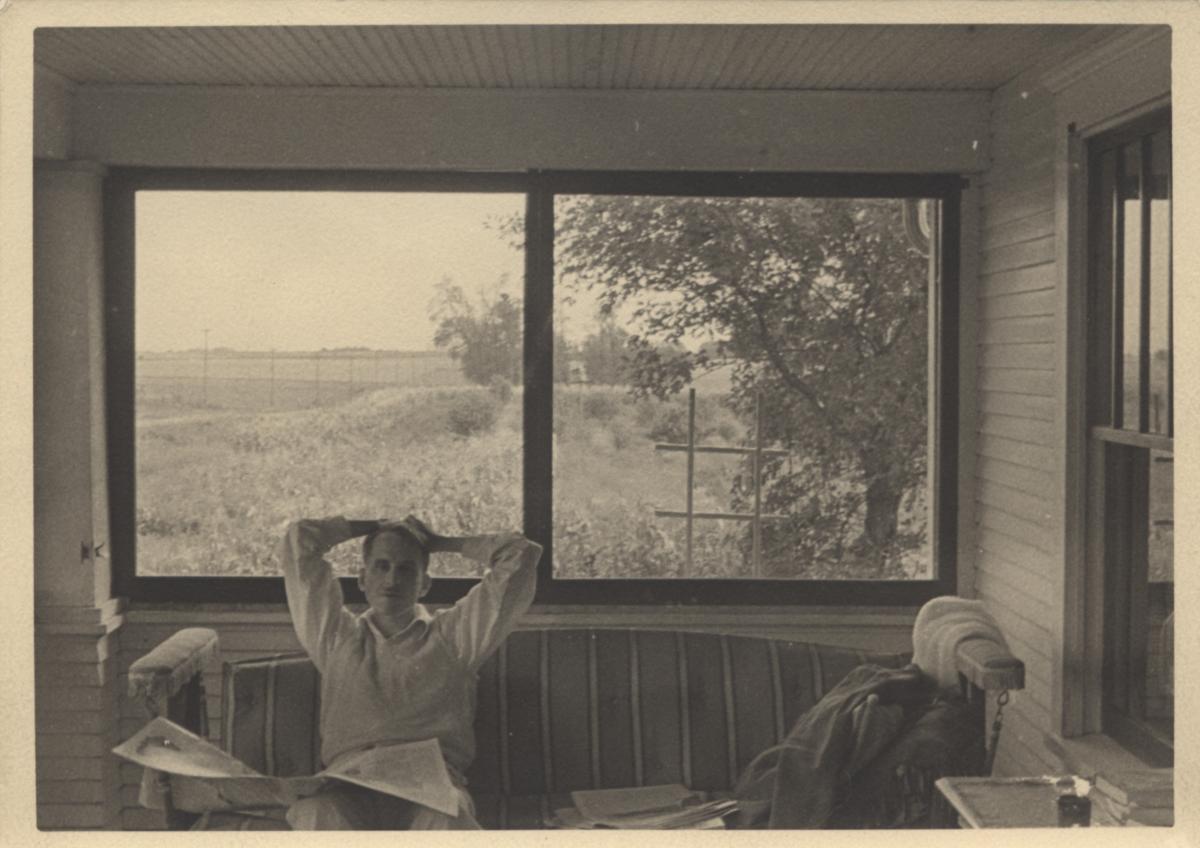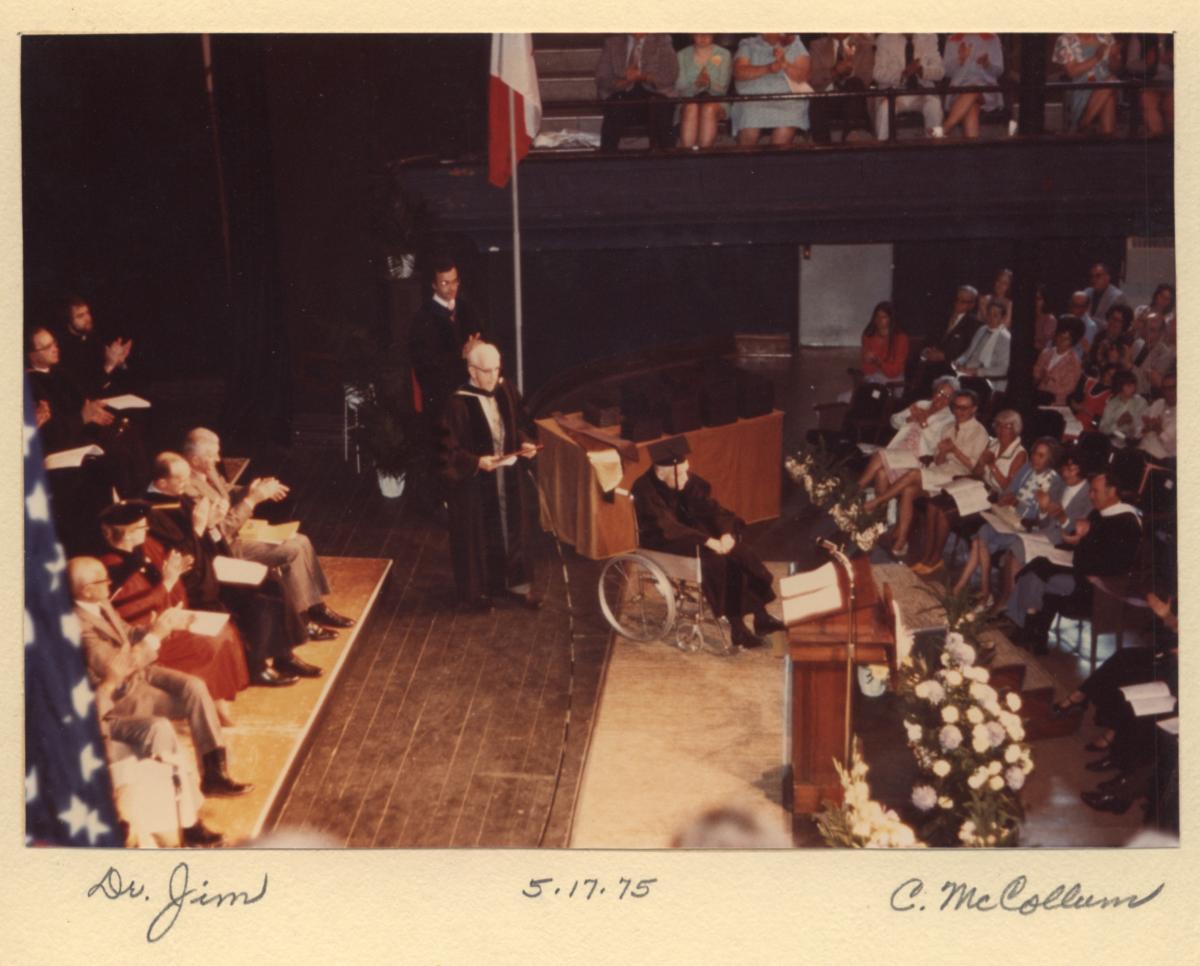Uncollected Essays
Uncollected Essays: Insights into Teaching and Life
James Hearst, who is sometimes described as the Robert Frost of the Midwest, wrote essays that represent him not only as a poet but also as a philosopher and educator. Hearst’s personality shines through his writing; while reading his essays, readers can sense Hearst’s voice conversing with them. Some of his most impressive works discuss issues related to the Iowan community and its future.
In “Salute to Iowa,” Hearst has a futuristic view that invites Iowans to plan and think of methods to benefit the local community for a better future. He does so by highlighting transcendentalism as an admirable philosophy. In “Two Men and The Simple Life,” he expresses his admiration for Henry David Thoreau and E. B. White along with the way they endeavor on a quest to find their truth in nature, away from the busyness of the city. I believe Hearst could relate to the idea of finding truth in nature as a poet in rural Iowa.
has a futuristic view that invites Iowans to plan and think of methods to benefit the local community for a better future. He does so by highlighting transcendentalism as an admirable philosophy. In “Two Men and The Simple Life,” he expresses his admiration for Henry David Thoreau and E. B. White along with the way they endeavor on a quest to find their truth in nature, away from the busyness of the city. I believe Hearst could relate to the idea of finding truth in nature as a poet in rural Iowa.
Furthermore, the idea of finding one’s truth as inseparable from one’s identity is another common theme in Hearst’s writings. The concept of individualism and being rooted in the American identity is highlighted in a number of his essays. Hearst’s sense of pride and individualism is never separable from his career; it is one of his tools as an educator in the classroom.
 Hearst, as an educator, encourages his students to produce knowledge as individuals and not reproduce secondhand material. “Write as you talk” is one of Hearst’s three principles when it comes to the craft of writing. In his essay “The Writing Class Launches the Craft of Fiction,” Hearst asserts the idea of the individual perceiving the world through his or her own experiences and using that as a tool to write; so, being innovative in addition to having a voice in writing is key to becoming a writer. Hearst’s essay on teaching writing discusses hands-on techniques and involvement in the learning process. Hearst distinguishes between teaching and learning; he wants his students to learn and not be passively lectured on how to learn. The patriotic tone of Hearst, along with his strong sense of identity, not only as a poet but also as an educator and a philosopher, are some of the many reasons why his prose should be brought out of the shadows and into the light.
Hearst, as an educator, encourages his students to produce knowledge as individuals and not reproduce secondhand material. “Write as you talk” is one of Hearst’s three principles when it comes to the craft of writing. In his essay “The Writing Class Launches the Craft of Fiction,” Hearst asserts the idea of the individual perceiving the world through his or her own experiences and using that as a tool to write; so, being innovative in addition to having a voice in writing is key to becoming a writer. Hearst’s essay on teaching writing discusses hands-on techniques and involvement in the learning process. Hearst distinguishes between teaching and learning; he wants his students to learn and not be passively lectured on how to learn. The patriotic tone of Hearst, along with his strong sense of identity, not only as a poet but also as an educator and a philosopher, are some of the many reasons why his prose should be brought out of the shadows and into the light.
— Rand Khalil
James Hearst: Uncollected Essays
"Authors and Humanism." Humanist, vol.11, 1951, p.198.
"Farm Life When the Power Changed." The Palimpsest, vol. 60, 1979, pp.156-161.
"First Meeting of the Writing Class." Iowa English Bulletin, vol. 10, 1959, p.1.
"Roots of Poetry." Voyages to the Inland Sea, II. pp. 33-39.
-----------. The North American Review, vol. 259, no. 3, 1974, pp. 15-17.
"Salute to Iowa." Address to the "Iowa 2000 Land, Water and Energy Conference." Ames: Iowa State Univ., 24 May 1978.
"A View of Iowa." The Iowan, 1963, pp. 11-13.
"We All Worked Together: A Memory of Drought and Depression." The Palimpsest, vol. 59, 1978, pp. 66-76.
"Who Is to Keep the Store?" The North American Review, vol. 254,1969, pp. 2-3.
"The Writing Class Launches the Craft of Fiction." Iowa English Bulletin, vol. 10, 1960, pp. 5-6.
"Young Poet on the Land." Growing Up in Iowa: Reminiscences of 14 Iowa Authors. Ed. Clarence Andrews. Ames: Iowa State Univ. Press, 1978, pp. 39-59.
